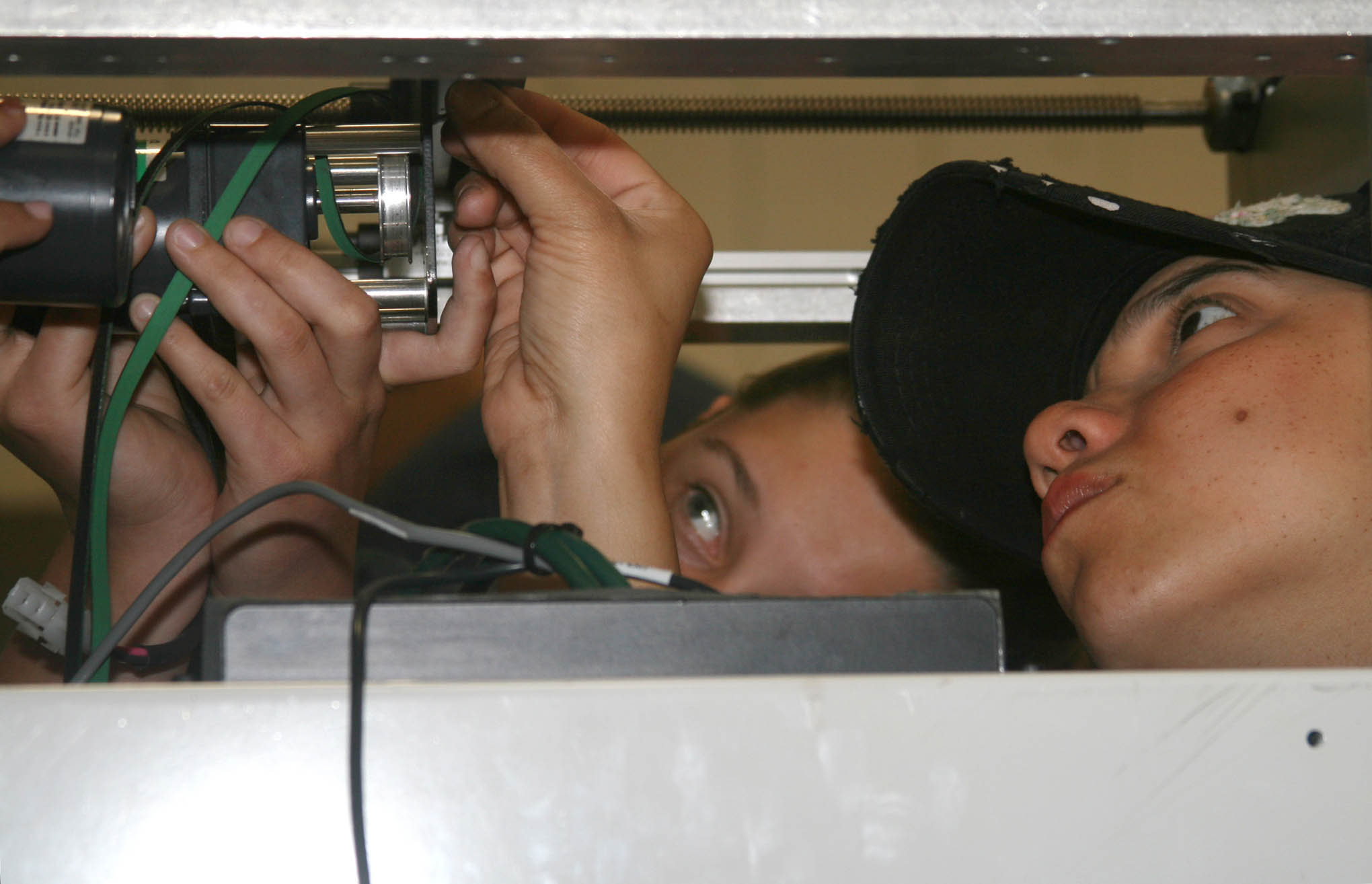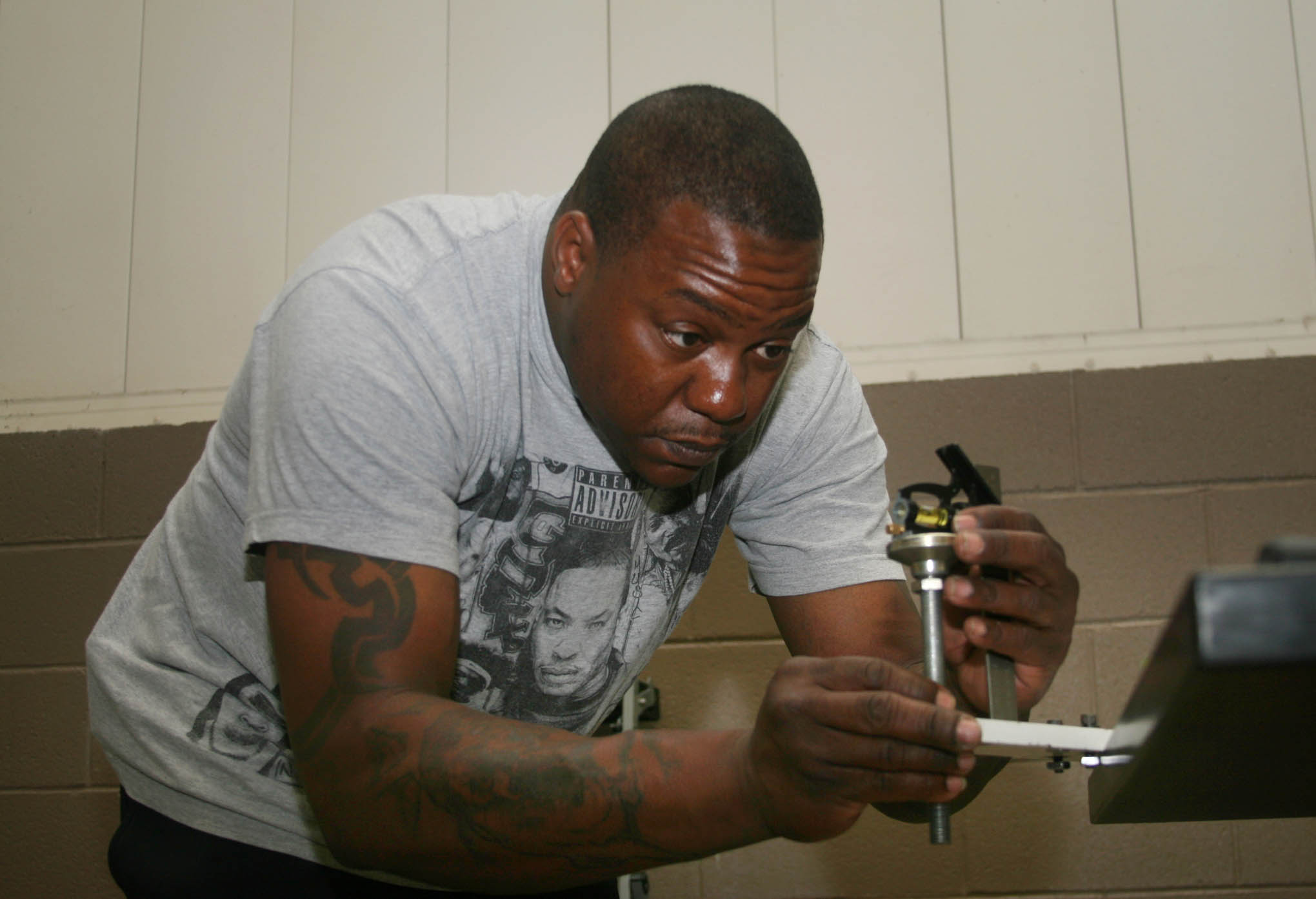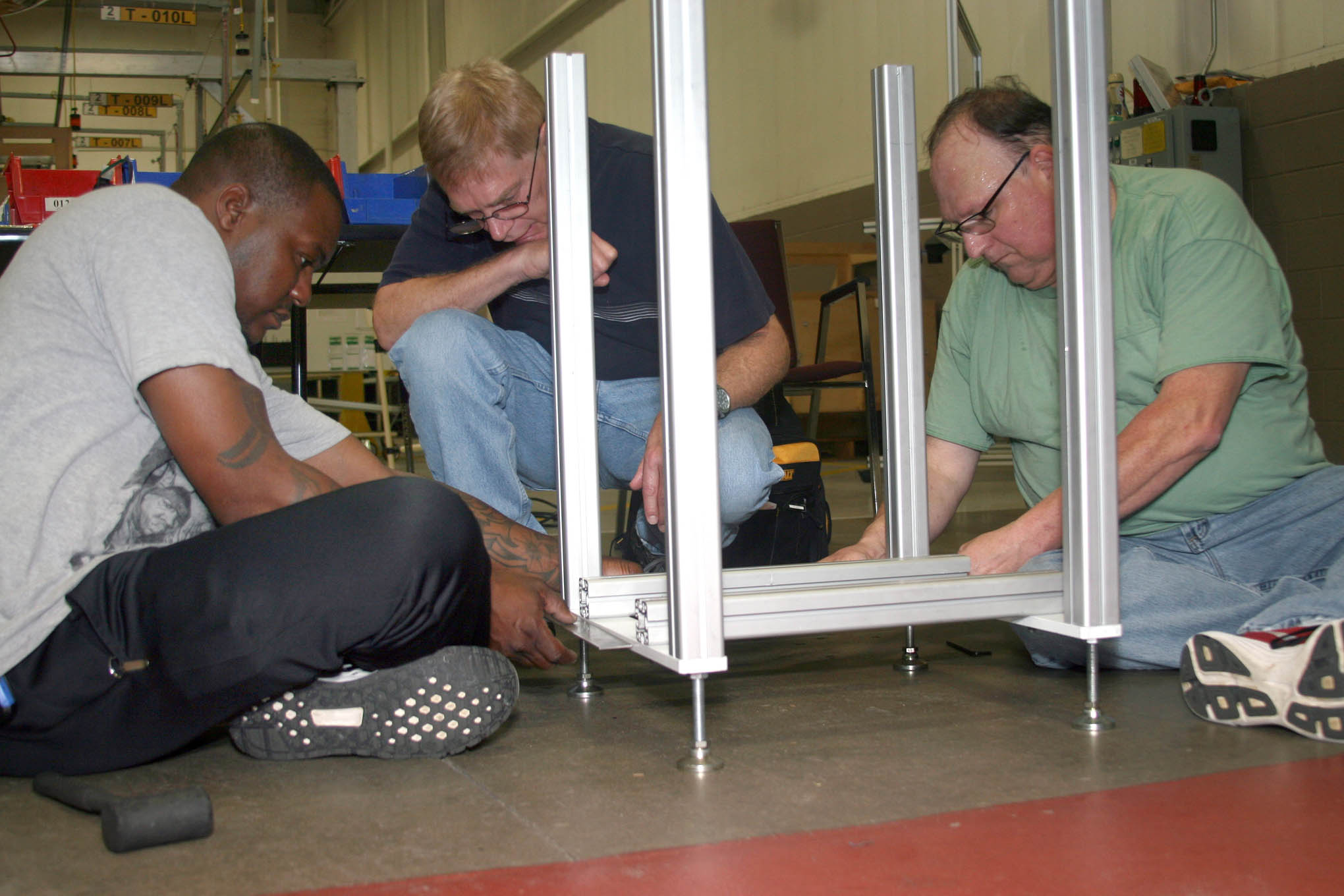
College News
CCCC, Conveyor Tech have comprehensive training partnership
06.18.2018 • College & Community, College General
SANFORD - Most companies would love to be Conveyor Tech. For the last year, the Sanford-based enterprise that designs and builds automated machines used in manufacturing worldwide has enjoyed skyrocketing growth.
Thanks to orders pouring in from existing customers -- and new ones, as well -- their share of the market is growing. They've added 78,000 square feet of space. And their workforce has exploded.
Dreama Pilson, the company's human resources director, says Conveyor Tech essentially is doubling their head count and has been hiring around the clock since last fall. They grew from 82 employees in October to 127 by the end of April. And sometime in the next year and a half, if all goes according to plan, they expect that number to hover somewhere around 200.
But even good news can present some dicey challenges. To start with, how can you quickly hire so many people and train them all to assemble high-tech automated machines, especially when there's already a lot of turnover in those entry-level positions?
Problem Solved
Nobody was more puzzled than Pilson -- until she mentioned the problem to Central Carolina Community College's industry services director Cathy Swindell. That's when the two longtime friends and industrial leaders had an idea: What about forming a comprehensive training partnership between Conveyor Tech and the college?
It started with that immediate problem -- training new hires. Swindell found a gifted master training instructor who spent a couple of weeks inside Conveyor Tech, learning their system, assessing exactly what new machine builders needed to succeed on the job and then designing a training program to provide the critical knowledge and skills.
CCCC opened the doors to its Howard-James Innovation Center, the state-of-the-art industrial training facility located a stone's throw from Conveyor Tech in the Lee County Industrial Park. Conveyor Tech provided all of the needed supplies, some basic tooling and, of course, a steady stream of new employees.
How It Works
Pilson now hires in groups of six to eight and sends them to a two-week, 80-hour training class before they ever land on the production floor. That class, using the curriculum developed specifically for entry-level machine builders at Conveyor Tech, provides classroom instruction on basic electrical systems and a lot of hands-on assembly practice. It even includes a final assessment: completely assembling an automated machine. To finish training successfully, employees must complete the assembly alone, in a fixed amount of time, with 90 percent accuracy.
With that new-employee problem solved and a structure now in place to provide training easily and effectively, Conveyor Tech and CCCC dug even deeper. They also added employee training in several other areas -- including electrical systems, forklift safety, leadership and team skills.
"We talked initially about the entry-level machine builders and what we needed to do to get a project in place, but then we talked about what else was needed given the growth they were going to have," says Swindell. "We knew there were other things that would help them be productive, efficient and successful.
"So, we're actually doing a larger project with other elements that will have a positive impact on the company."
Innovation and Success
It has been an unqualified success. Not only has training allowed new employees to start building machines with added confidence and skill, but it means Conveyor Tech's more experienced machine builders can use their time better. Rather than teaching the most basic skills to new employees, they can serve as mentors and focus on creating the company's intricate equipment.
"The partnership has been instrumental to our fast growth," says Pilson. "It has helped us improve both quality and production schedules -- which provides benefits internally, within the company, and externally for our customers."
It's also been good for Swindell and the college. The project provided an opportunity to help one local company solve a real problem and, maybe even more importantly, demonstrate how partnerships between education and industry can pay real dividends when everyone brings their expertise to the table.
"We don't want the community college to be seen as a last resort; we want it to be the first," is how Swindell puts it. "When companies are looking for employees, developing the ones they have or training new ones coming in, they should think about the community college right away, because this is where workforce development happens."
Apparently, others are believers, too. Everything went so well at the Innovation Center that the Conveyor Tech project will be featured as an effective and innovative partnership during a presentation at MFGCON 18, the manufacturing innovation conference held each year in the Research Triangle. Pilson and Swindell will be sharing details and insights in September with industry leaders from across the state.
"Recruitment and retention are problems throughout the manufacturing environment," Pilson says when asked how she expects the presentation to be received. "Well-trained employees are happy employees, so the reaction can be only positive."
For further information on CCCC Industry Services, contact Cathy Swindell, Director of Industry Services, at (919) 718-7212 or email to cswindell@cccc.edu.

Recently hired machine builders Claudia Maddox, left, and Yesenia Alicea get close to the equipment while installing electronics in an automated machine during an innovative training course developed by Central Carolina Community College and Conveyor Tech.

Conveyor Tech machine builder Tyson Chavis begins his job at CCCC's Howard-James Innovation Center, where new employees learn to build automated machines in a two-week, 80-hour training class before starting work on the production floor.

Instructor Mike Kidd, center, assesses the work of Conveyor Tech machine builders Tyson Chavis, left, and Tracy Minnick during a training session for new employees. The two-week class was developed specifically for the local company as part of an innovative training partnership between Conveyor Tech and Central Carolina Community College.
- Central Carolina Community College
- Serving Chatham, Harnett, & Lee Counties, NC
- 1-800-682-8353



